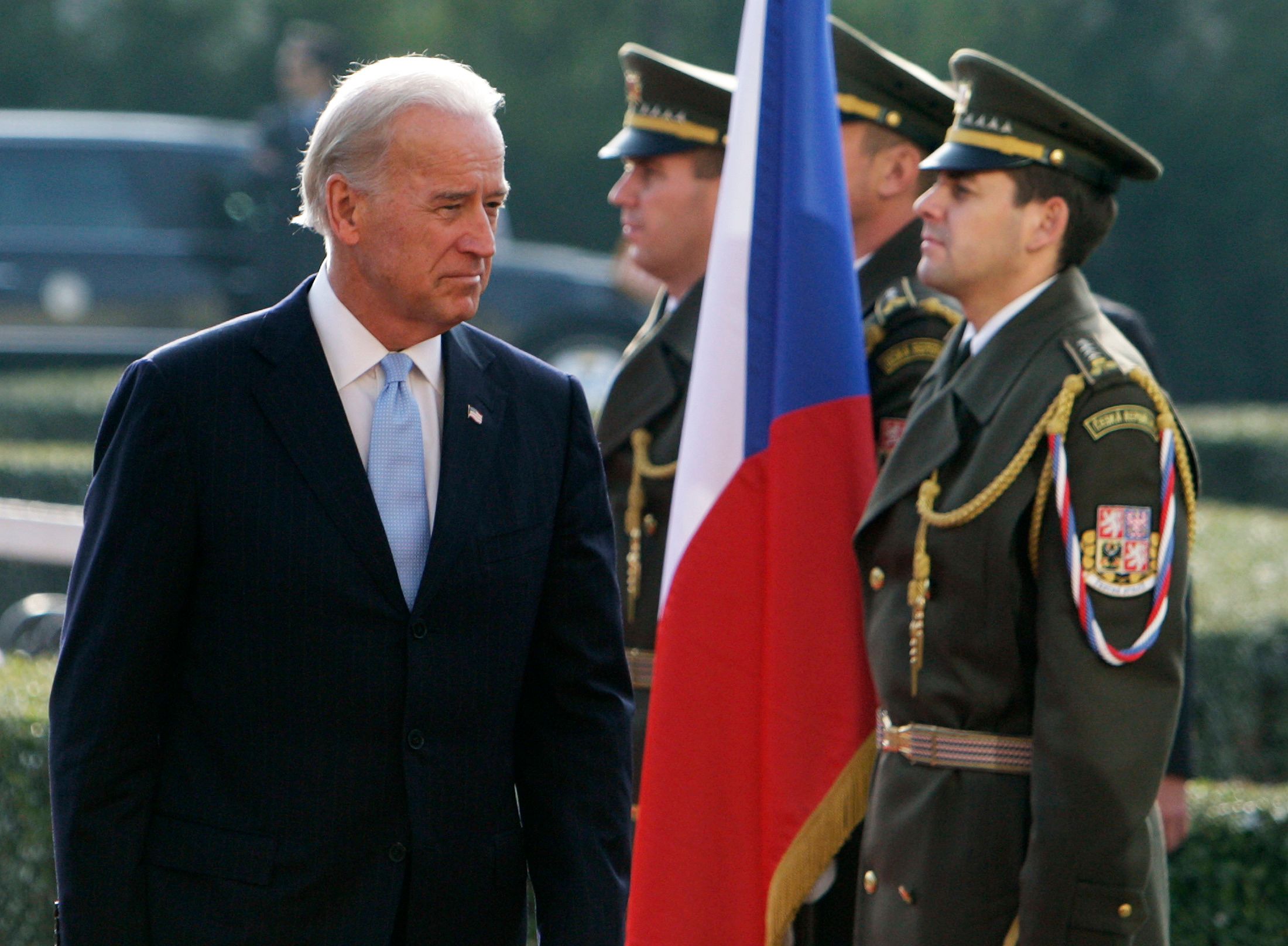Czechia on the Biden Administration

Development of Cooperation
Before Biden, Babiš’s government acted to meet the expectations of the Trump administration. The culmination of the strengthening of Czech-American relations was Babiš’s visit to the White House in March 2019 as part of a series of meetings between Trump and the leaders of Central European countries. Czechia joined the rest of the V4 countries in the International Religious Freedom Alliance initiated by the Trump administration. Together with Romania and Hungary, Czechia also blocked an EU statement criticising the relocation of the U.S. embassy to Jerusalem, which was combined with strengthening the Czech diplomatic presence in this city. Its continuation during Biden’s presidency, including the opening of an office of the Czech embassy in Jerusalem, testifies, however, to an attempt to further improve relations with Israel regardless of the U.S. policy towards this state.
The Czech government welcomed the change of administration in the U.S. in the context of transatlantic trade. The departure from Trump’s protectionist strategy reduces the risk of trade disputes that could threaten Czech exports: the U.S. is its largest recipient outside the EU ($4.5 billion last year). The Czech government also favours Biden’s proposal to introduce a global tax on large corporations. Czechia connects this initiative to an increase in budget revenues at the expense of multinational companies such as Google. The Czech government also supported the establishment in April this year of a joint fund of the Czech Academy of Sciences and the Massachusetts Institute of Technology, which is to support the financing of Czech-American research projects. On the other hand, Babiš’s government is sceptical about the American idea of introducing a global minimum corporate income tax rate, which it sees as a limitation of state sovereignty.
Russia, China, and Transatlantic Relations
The crisis in Czech-Russian relations after the Czech government’s decision in April to expel 18 Russian diplomats identified as spies is working in favour of rapprochement between Czechia and the U.S. Following the results of an investigation by the Security Information Service (BIS) indicating Russia’s involvement in explosions at ammunition depots in Vrbětice in 2014, the U.S. expressed its support bilaterally and within the North Atlantic Council. While the Biden administration did not expel Russian diplomats in express solidarity with Czechia (unlike Slovakia, the Baltic states, and Romania), before that it announced that 10 Russians were personae non grata in response to interference in the 2020 U.S. presidential election.
The sudden deterioration of relations with Russia thwarted the policy of Babiš’s cabinet aimed at seeking new fields of cooperation with that country. As a result, the Czech actions were closer to the American expectations. The Czech government also withdrew from efforts to bring in the Russian Sputnik V vaccine, which is assessed by the U.S. as detrimental. It also announced the exclusion of the Russian state company Rosatom from a tender for an extension of the Dukovany nuclear power plant—the Biden administration had warned the firm was an “unreliable player”. According to an opinion poll carried out after the results of the investigation into the explosions in Vrbětice, 65% of Czechs supported the decision to expel the Russians. In excluding the Russian company, the U.S. also hopes to increase the chances of the American company Westinghouse in implementing this investment. However, the deterioration of relations with Russia did not induce the Czech government to change its positive assessment of the construction of the Nord Stream 2 (NS2) gas pipeline.
As in the case of other European countries, including Slovakia, the policy towards China has an impact on the development of relations between Czechia and the U.S. Czech actions in recent years towards China have corresponded with the bipartisan expectations of the U.S. towards its allies in the EU. They included, among others, signing a Czech-American agreement regarding the expansion of 5G and a warning by the Czech security services against use of Huawei software. In turn, in March, the U.S., along with 13 countries, including Czechia, criticised the content of a WHO report about the source of the pandemic in China.
Extended Security Dimension
Security remains the main element of Czech-U.S. cooperation. Troops from both countries are stationed in Iraq and Afghanistan. Biden’s announcement of the withdrawal of the U.S. contingent from the latter country by 11 September this year marks also the return of the Czech troops. In 2021, Czechia reduced its Afghan contingent from 390 to 205 soldiers. In terms of defence spending, Czechia falls short of NATO’s commitments and the American expectations. In 2020, it spent 1.34% of GDP for this purpose, the least among the V4 countries.
Regardless of the U.S administration in charge, cybersecurity is gaining importance in relations between Czechia and the U.S. Hacker attacks during the COVID-19 pandemic on Czech critical infrastructure, including hospitals, were condemned by the Trump administration. In March, Czechia extradited to the U.S. two Ukrainian citizens accused of cyberattacks in multiple countries. The willingness to continue the coordination of activities in this field is evidenced by the content of Babiš’s conversation with Secretary of State Antony Blinken on 5 March. Also, BIS and the National Cyber and Information Security Agency (NUKIB) pay attention to these issues. In the national cybersecurity strategy for 2021-2025, NUKIB emphasised the need for joint actions in NATO.
Where Differences Remain
Biden’s victory further narrowed the possibility of cooperation at the level of heads of state. President Miloš Zeman, a supporter of rapprochement with Russia and China, participated in the 17+1 summit in February this year and undermined the results of the BIS investigation that indicated that Russia was involved in the explosions in Vrbětice. In the course of the election campaign in the U.S., Zeman openly supported Trump, although the two heads of state did not meet.
The presidents’ different perceptions of democratic standards, to which Biden attaches greater importance than Trump, may weaken bilateral relations. A State Department report published on 30 March and covering the previous year points out that Babiš maintains influence on the media market and has a conflict of interests. This was confirmed in a 23 April report by the European Commission showing a link between the prime minister and the influence he retains over his former agri-food conglomerate, Agrofert.
Conclusions and Perspectives
The crisis in Czech-Russian relations is conducive to rapprochement in relations between the U.S. and Czechia. During the campaign before the parliamentary elections planned for this autumn, the government parties abandoned the policy of expanding cooperation with Russia at the expense of good transatlantic relations on issues like counteracting the pandemic or changes in the energy sector. However, the decisions to withdraw from acquiring Sputnik V and to exclude Rosatom from the tender for the expansion of the Dukovany power plant are aimed more at gaining points with voters than at strengthening relations with the U.S.
As part of multilateral activities, Czechia shows greater readiness to cooperate with the U.S. through the Visegrad Group than through the Three Seas Initiative, where it is among the most restrained members, along with Austria and Slovakia. Blinken’s meeting with the V4 foreign ministers in March shows the interest of the American administration in the V4+ format in consultative purposes. Cybersecurity issues would be a desirable topic for Poland for further consultations with the U.S., also due to the U.S.-Czech cooperation in this field. This would also correspond to the programme of the current Polish presidency of the V4. Such consultations would be beneficial for Poland in the context of the work of the Central European Platform for Cybersecurity, composed of the V4 states and Austria, and the Czech authorities’ efforts to make this topic one of the themes of its presidency in the EU Council in the second half of 2022. In turn, V4 states’ consuls sharing experiences in the fight against the pandemic with New York City authorities in October last year showed the possibilities of using the V4+ U.S. format at various levels.


